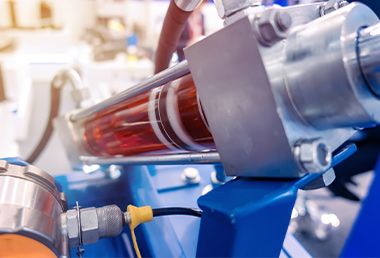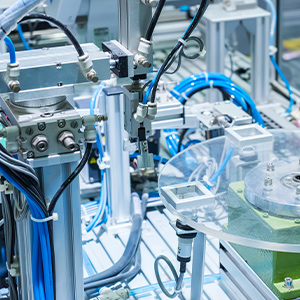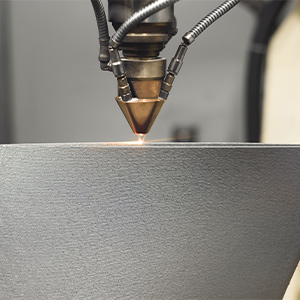Everything You Need To Know About Hydraulic Leaks
Post By: Tom Rowse On: 09-09-2022
The basic principle behind hydraulics is to use non-compressible fluids to generate power. You can’t squash a liquid, so if you apply pressure to it, it will generate force that can be harnessed to produce motion. You can also multiply the amount of force produced by using a smaller hydraulic cylinder to transfer pressure to several larger ones. This multiplies the amount of available force, allowing hydraulic systems to manipulate very heavy objects, but it also multiplies the number of components in the system.
The more components you have in a hydraulic system, the more opportunities there are for leaks to occur. At the very least, you’ll find five essential elements in such a system, including:
- A reservoir containing hydraulic fluid
- A hydraulic pump to propel that fluid and create flow
- A motor to drive the pump and create hydraulic pressure
- An actuator or cylinder for the output force and motion
- Valves and hoses to regulate and facilitate fluid flow
What Causes A Hydraulic Leak?
Hydraulic leaks can occur in any of these components, but are most typically found in the hoses that carry the fluid and the points where the various components connect. Wear and tear will cause hoses to fray or split and pipes to crack, while the connectors joining these to other components can also disengage due to constant system vibration. Seals are particularly prone to wear in the hydraulic cylinders, allowing fluid to seep out. Regular inspection and maintenance are critical to prevent this from happening.
If an undiagnosed hydraulic leak occurs, immediate detection and repair are essential to keep your system running. Hydraulic fluid leaks make the system less efficient, as there’s less fluid available to develop force. Losing fluids in any significant volume can also cause damage to your hydraulic pump. The good news is that hydraulic fluid leaks are usually small, rarely gush liquid and won’t immediately affect the system’s functioning. Left undetected, however, their effect on the system can be serious.
Signs Of Hydraulic Leaks
There are three very common symptoms you can pick up on which indicate a hydraulic leak:
- Puddles
- Falling fluid levels
- Underperforming equipment
Let’s take a look at each of these in detail.
- If you see puddles on the floor under your machine, it’s pretty obviously leaking. Puddles can be various colours but are mostly odourless, as hydraulic fluids are mostly composed of water, glycol or vegetable or mineral oil.
- If you notice the fluid levels falling in your hydraulic system, this is a sure indicator of a leak. Fluid gauges are designed for just this purpose, and you should monitor the level for a few cycles to find out if it’s dropping.
- If you think a machine is not performing properly, it could well have a leak. Signs of poor performance include insufficient pressure, running hot or sudden unusual and inexplicable noises. Leaks are the most common solution to these problems and the most easily repairable, so they should be your first troubleshooting option.
Many hydraulic machines, especially industrial ones, operate in non-sterile surroundings. They’re often covered in oil and dirt, which makes leak detection difficult. If all else fails, you can try an industrial leak detection kit, which uses fluorescent dye to show up leaks.
How To Stop Hydraulic Leaks
Once you’ve noticed a leak, the next step is to track down its location. On small hydraulic systems, you’ll have to don protective gloves and depressurise the system. Then check all the connectors, seals and joints. You can mostly fix leaky fittings and couplings just by tightening them, but you may have to replace damaged seals and hoses. If this isn’t an option, you could look at a hydraulic leak sealant for non-catastrophic leaks.
For larger hydraulic systems, you’ll probably need to call in professional help. The process requires a thorough understanding of hydraulic mechanics, plus specialised equipment to test pressure, temperature and flow.

Why Is Fixing Hydraulic Leaks Important?
If you fail to spot a leak or ignore it, you’ll be inviting trouble: possibly even catastrophic equipment failure and potential loss of life. For critical hydraulic systems like power steering or an excavator, it could also be expensive, not only in terms of repairs but because the equipment will not be working for an unspecified time. These costs can escalate downstream if additional problems arise, such as missed deadlines, unfulfilled orders, and other equipment and staff being unable to work as a result.
The cost to your business of a hydraulic leak depends entirely on what equipment and components require repair or replacement. There’s a world of difference between buying a bottle of hydraulic leak sealant, a length of hose, or a new hydraulic motor.
Hydraulic leaks can also constitute an environmental hazard if leaking fluid gets into the air or dribbles onto the ground. If your fluid is leaking and you constantly replace it, you might as well be dumping it directly into the environment. This isn’t such a big problem with water or mineral oils, but other fluids with synthetic additives are not good for the environment at all.
How You Can Prevent Hydraulic Leaks
As hydraulics is a closed system, it should continue to run dependably and efficiently for years with only a little bit of maintenance. The only thing you really need to do regularly is to lubricate the seals to keep them supple and slow their degradation. It’s important to use the right lubricant and to follow the directions so that you use the right amount. If you choose some other type of lubricant that’s not designated specifically for hydraulic seals, they may still fail.
It’s a simple maintenance strategy to make sure the fittings are correctly tightened, strictly according to the manufacturer’s specifications. If fittings are over-tightened, they may crack; if they’re under-tightened, they may lead to leaks or allow contaminants into the hydraulic system. Any air, water, debris or particulates getting into the hydraulic fluid could cause significant damage and make leakage more likely.
Any hydraulic filters in your system must also be replaced regularly to ensure that the hydraulic fluid continues to be clean and uncontaminated. The manufacturer’s specifications will tell you how often you should change the filter.
Get More From Rowse Straight To Your Inbox




